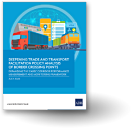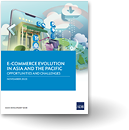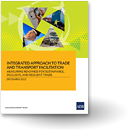Regional Public Goods
United Nations Framework Convention on Climate Change
In 1992, countries joined an international treaty, the United Nations Framework Convention on Climate Change, to cooperatively consider what they could do to limit average global temperature increases and the resulting climate change, and to cope with whatever impacts were, by then, inevitable.By 1995, countries realized that emission reductions provisions in the Convention were inadequate. They launched negotiations to strengthen the global response to climate change, and, two years later, adopted the Kyoto Protocol. The Kyoto Protocol legally binds developed countries to emission reduction targets. The Protocol’s first commitment period started in 2008 and ended in 2012. The second commitment period began on 1 January 2013 and will end in 2020.
There are now 195 Parties to the Convention and 192 Parties to the Kyoto Protocol. The UNFCCC secretariat supports all institutions involved in the international climate change negotiations, particularly the Conference of the Parties (COP), the Conference of the Parties serving as the meeting of the Parties (CMP), the subsidiary bodies (which advise the COP/CMP), and the COP/CMP Bureau (which deals mainly with procedural and organizational issues arising from the COP/CMP and also has technical functions). For a brief depiction of how these various bodies are related to one another, please see Bodies.
Agreements
- First steps to a safer future: Introducing The United Nations Framework Convention on Climate ChangeUnited Nations Framework Convention on Climate Change21 Mar 1994
News
- At UN climate summit, world leaders say time is running short to stop the worst effects of warmingManila Bulletin7 Nov 2025
- India: [Minister] Bhupender Yadav holds talks with COP30 President Designate Ambassador [Correa] on climate changeANI News1 Sep 2025
- Singapore, Thailand sign implementation agreement on carbon credits collaborationVietnam+20 Aug 2025
- Pakistan urges more funding for developing countriesThe Express Tribune21 Jul 2025
Opinions and Editorials
- Asia-Pacific nations must work together to protect natureThe Daily Star - Bangladesh21 Mar 2024
- COP27: Why it matters and 5 key areas for actionWorld Economic Forum25 Oct 2022
- ASEAN should sets sights higherBangkok Post29 Oct 2021
- What Paris [climate] deal might bring to fight climate changeKhmer Times30 Sep 2021
Studies and Research
- Green Finance Strategies for Post-COVID-19 Economic Recovery in Southeast Asia: Greening Recoveries for Planet and PeopleAsian Development BankAsian Development Bank7 Oct 2020
- World Economic and Social Survey 2016 Climate Change Resilience: an opportunity for reducing inequalitiesDepartment of Economic and Social Affairs of the United Nations SecretariatUnited Nations1 Jan 2016
Meetings
- Warsaw Climate Change Conference 2013United Nations Framework Convention on Climate Change11 Nov 2013
- Doha Climate Change Conference 2012United Nations Framework Convention on Climate Change26 Nov 2012
- Bangkok Climate Change Conference 2012United Nations Framework Convention on Climate Change30 Aug 2012




